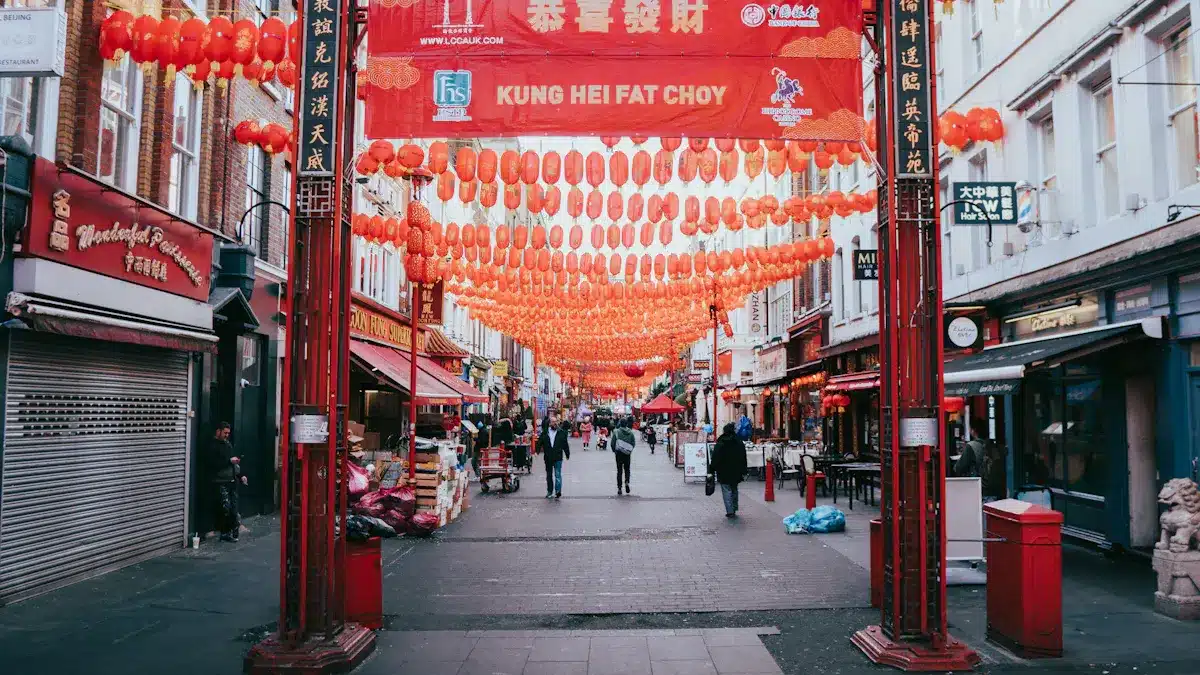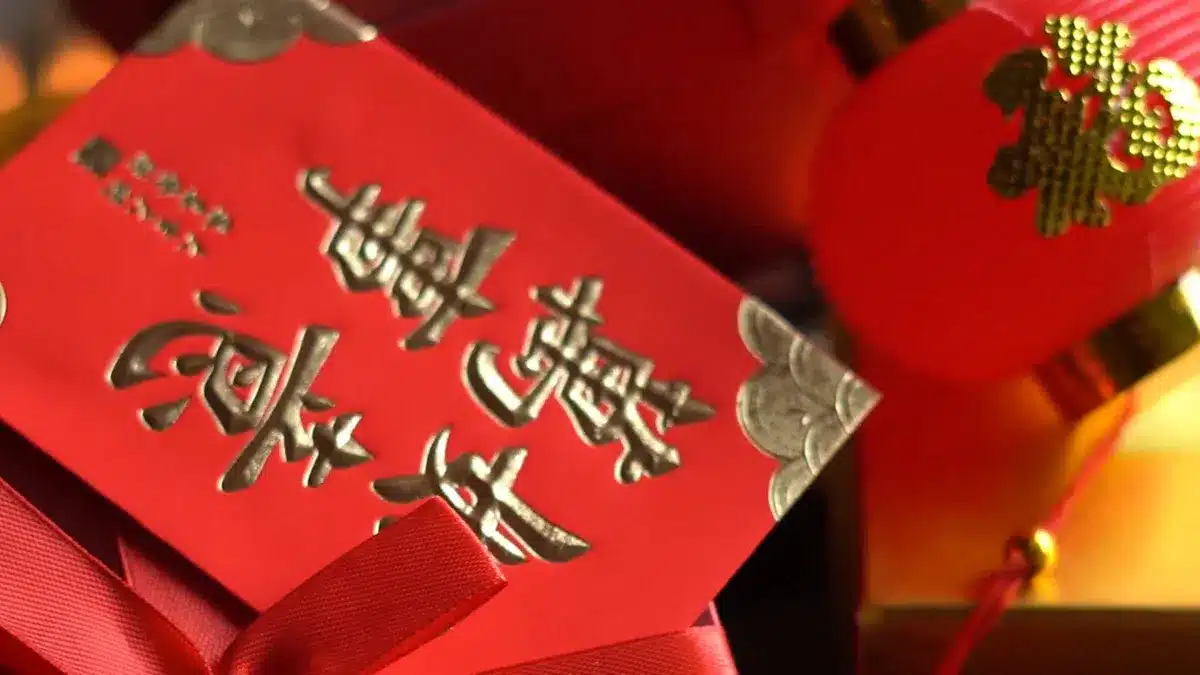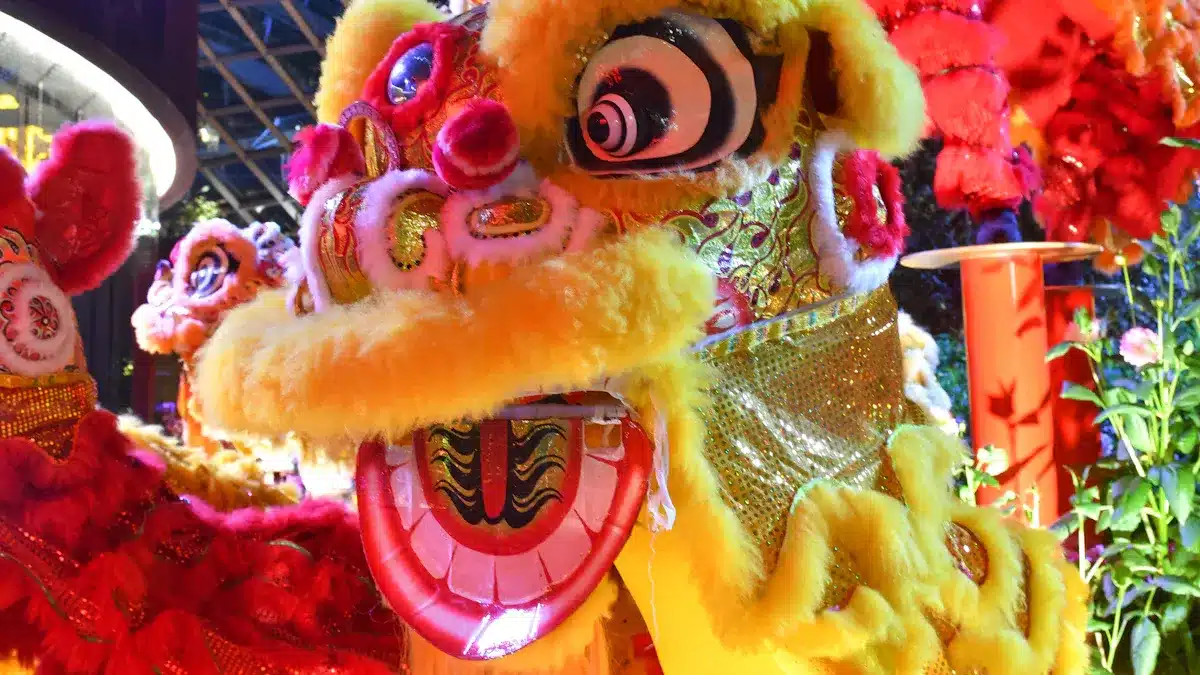
Gong Hei Fat Choy is a Cantonese phrase with deep meaning, translating to “wishing you happiness and wealth.” It is commonly shared during Chinese New Year, a time when families and friends come together to celebrate new beginnings and good fortune.
In 2025, the greeting “Gong Hei Fat Choy 2025” carries even greater significance. It represents gratitude, hope, and the desire to strengthen relationships. Saying Gong Hei Fat Choy during the Lunar New Year in 2025 highlights the importance of kindness and care. These words embody wishes for health, joy, and success, connecting people across generations. As the world becomes more interconnected, Gong Hei Fat Choy 2025 blends traditional values with modern ways of spreading happiness and unity.
Key Takeaways
Gong Hei Fat Choy means ‘wish you joy and wealth.’ Say it to share happiness during Chinese New Year.
In 2025, saying Gong Hei Fat Choy shows thankfulness and values friendships. It brings people of all ages together.
Traditions like cleaning houses and giving red envelopes bring luck. Take part in these activities to celebrate the holiday.
The Year of the Snake stands for wisdom and change. Use these qualities to achieve success and joy this year.
Saying Gong Hei Fat Choy, even online, honors Chinese culture. Celebrate to spread kindness and bring people together.
Understanding ‘Gong Hei Fat Choy’
Literal Meaning and Cultural Significance
The phrase “Gong Hei Fat Choy” is not just “Happy New Year.” It actually means “Wishing you wealth and success.” This greeting is very important during Chinese New Year. The festival has been celebrated for over 3,000 years. It began with old myths and farming traditions. Lunar New Year is a time for family, honoring ancestors, and sharing future hopes.
In Chinese culture, having children to continue your family is valued. Prosperity also includes good health and strong relationships. These let you enjoy life and share moments with loved ones. Intelligence, creativity, humor, and a positive attitude also matter. Together, they create the full meaning of prosperity.
This greeting shows these values, focusing on health, joy, and success. It reminds people to value relationships and grow personally while celebrating the new year.
Differences Between ‘Gong Hei Fat Choy’ and ‘Kung Hei Fat Choi’
You might see this greeting written or said differently. “Gong Hei Fat Choy” and “Kung Hei Fat Choi” are both Cantonese. They differ because of how they are written in English. Here’s a simple comparison:
Term | Language | Where It’s Used |
|---|---|---|
Gong Xi Fa Cai | Mandarin | Mostly in Mainland China |
Kung Hei Fat Choi | Cantonese | Hong Kong and Cantonese areas |
“Kung Hei Fat Choi” is common in English-speaking places. This is due to Cantonese-speaking communities.
“Gong Xi Fa Cai,” the Mandarin version, is used more in China.
Both mean the same thing, but where and how they are used depends on the language.
The Connection to Prosperity and Happiness
“Kung Hei Fat Choi” is more than wishing for a rich year. It also hopes for a happy and full life. Prosperity means wealth, health, and good relationships. During Chinese New Year, this phrase spreads kindness and builds connections.
The phrase highlights wealth and success as key wishes for the new year.
It reminds us that true success includes emotional and spiritual happiness too.
When you say “Kung Hei Fat Choi,” you wish others joy and success. It’s a special part of celebrating the Lunar New Year.
Cultural and Linguistic Origins
The History of ‘Gong Hei Fat Choy’
The phrase “Gong Hei Fat Choy” comes from southern China. It means “congratulations on gaining wealth,” showing its deeper meaning. During Chinese New Year, it expresses hope for success and riches. Over time, it became a key part of the celebration, especially in Cantonese-speaking areas.
In the Philippines, people say “Kiong Hee Huat Chai” instead. This version mixes joy and prosperity, showing cultural adaptation. Kids asking for “lai see” (money in red envelopes) adds to its importance. Many think “kung hei fat choi” means “Happy New Year,” but it actually wishes for success and wealth.
Variations Across Dialects: ‘Kung Hei Fat Choi’ and ‘Gong Xi Fa Cai’
Different dialects use different versions of the greeting. Cantonese speakers say “Kung Hei Fat Choi,” while Mandarin speakers say “Gong Xi Fa Cai.” Both mean the same but show China’s language diversity. In mainland China, “Gong Xi Fa Cai” is more common because Mandarin is widely spoken. “Kung Hei Fat Choi” is still popular in Hong Kong and among Cantonese speakers worldwide.
Migration helped spread these phrases. Cantonese communities brought “kung hei fat choi” to English-speaking countries. It became well-known, like words such as “kung fu” and “kumquat.” The choice of phrase often depends on culture and language, keeping traditions alive.
The Role of Language in Preserving Chinese New Year Traditions
Language helps keep Chinese New Year traditions alive. For example, Thai Chinese in Songkhla use modern offerings but keep traditions through language. This shows how language preserves culture even when practices change.
Phrases like “kung hei fat choi” and “gong xi fa cai” are more than greetings. They carry the spirit of Chinese New Year, linking families and communities. By saying them, you help keep the festival’s traditions alive for future generations.
Gong Hei Fat Choy 2025: Modern Relevance

Celebrating Chinese New Year in 2025
In 2025, Chinese New Year still brings people together. This festival, called the Spring Festival, honors old traditions and new ideas. People say “gong hei fat choy 2025” more often now. They share it in person and online to wish others luck and happiness.
Families clean their homes to remove bad luck before the new year. Red lanterns and couplets are used to bring good fortune. Special meals with foods like dumplings and fish strengthen family ties. In 2025, technology helps too. Virtual red envelopes and online greetings keep traditions alive in modern ways.
The Global Spread of ‘Gong Hei Fat Choy’
The phrase “gong hei fat choy 2025” is now known worldwide. It started in Cantonese but is used by many cultures today. In the Philippines, Filipino-Chinese communities say “Kiong Hee Huat Chai” to celebrate. This shows how traditions adapt over time.
You might also hear “gong xi fa cai,” the Mandarin version, in some places. These greetings connect people across languages and cultures. Whether you’re in Hong Kong, America, or Southeast Asia, saying “gong hei fat choy” spreads joy and unity.
How the Year of the Snake Adds New Meaning
The Year of the Snake in 2025 brings special meaning. In Chinese culture, snakes symbolize wisdom, change, and intuition. These ideas match the wishes of “gong hei fat choy 2025.”
Think about how the snake’s traits can guide your year. Wisdom helps you make smart choices. Change encourages you to grow and improve. By focusing on these values, you can find success and happiness. The Year of the Snake reminds us that true prosperity means becoming your best self.
Celebrating and Attracting Prosperity

Traditional Customs for Chinese New Year
Chinese New Year has many traditions to bring luck and joy. Families clean their homes to remove bad luck and welcome good fortune. Red envelopes with money are given to kids and unmarried adults. These envelopes are symbols of blessings and luck. Fireworks are used to scare away bad spirits and celebrate the new year.
“A seat was saved for family members who couldn’t come home. Foods like whole fish are served because they mean abundance.”
Respecting ancestors and elders is also very important. Families make special meals with foods like dumplings and fish. These foods have lucky meanings. These customs show the values of respect and thankfulness.
Modern Ways to Share ‘Gong Hei Fat Choy’
Today, people share “gong hei fat choy” in fun, new ways. Social media helps send greetings quickly to friends and family far away. Virtual red envelopes are now popular for sharing blessings online.
People living abroad often join local traditions to celebrate. They wear red, eat dumplings, and say greetings like “gong xi fa cai.” These actions help build a sense of community. Modern ways keep the festival’s spirit alive in today’s busy world.
Foods and Decorations That Symbolize Prosperity
Food and decorations are key to bringing luck during Chinese New Year. Dumplings stand for wealth because they look like old gold coins. Fish means plenty, and long noodles represent a long life. Red lanterns and couplets are thought to bring good luck and chase away bad energy.
Symbols of luck and happiness are at the heart of the celebration. These items make homes look festive and bring hope. By using these traditions, you can invite good fortune into your life for the new year.
The phrase “Gong Hei Fat Choy” is important in Chinese culture. It helps people remember traditions and value happiness, success, and relationships. In 2025, this greeting means even more. It connects families and brings people together everywhere.
Saying “Gong Hei Fat Choy” shares kindness and builds stronger friendships.
Celebrate Lunar New Year by honoring its meaning. Use old customs or new ways to spread joy. Let these words bring hope to you and others. 🌟
FAQ
What does “Gong Hei Fat Choy” mean in English?
“Gong Hei Fat Choy” translates to “Wishing you happiness and wealth.” It’s a traditional Cantonese greeting shared during Chinese New Year to express hopes for prosperity and joy in the coming year.
Is “Gong Hei Fat Choy” the same as “Kung Hei Fat Choi”?
Yes, both phrases mean the same thing. The difference lies in how they are written in English. “Kung Hei Fat Choi” is an older Romanization, while “Gong Hei Fat Choy” follows modern standards.
Can non-Chinese people say “Gong Hei Fat Choy”?
Absolutely! Sharing this greeting shows respect and appreciation for Chinese culture. When you say it, you join in the celebration and spread good wishes to others.
Why is red important during Chinese New Year?
Red symbolizes luck, happiness, and protection in Chinese culture. You’ll see red decorations, lanterns, and envelopes everywhere during the festival. These items are believed to bring good fortune and ward off bad spirits.
How can you celebrate Chinese New Year if you’re not Chinese?
You can join local events, try traditional foods like dumplings, and say “Gong Hei Fat Choy” to friends. Learning about the customs and their meanings helps you appreciate the celebration even more. 🎉


